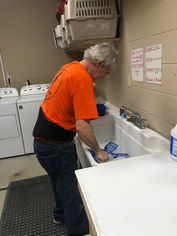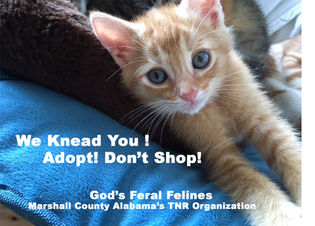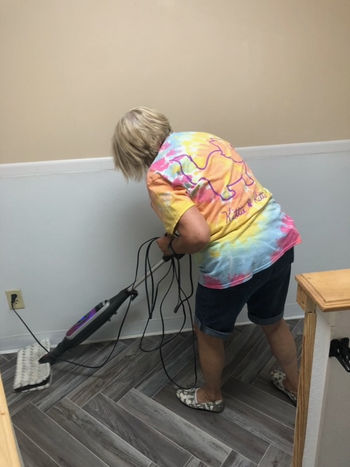God's Feral Felines is committed to making a difference in the lives of owned, and unowned cats in Marshall, Cullman and Blount Counties, AL. With a dedicated board of 6 members, and our fabulous volunteers, over 4000 cats have been sterilized through our multiple programs. If you are feeding a feral cat colony, or know someone who is, and want help with spaying and neutering the cats, please contact us. We also have a low cost spay and neuter program for low income households
Our Service TNR
Trap-Neuter-Return, commonly known as TNR, stands out as the most compassionate and efficient method for addressing stray and feral cat populations. With decades of practice in the US, scientific research validates TNR's benefits: enhancing feral cats' well-being, fostering positive community relationships, and gradually diminishing colony sizes. Since our journey began in 2013, we've successfully neutered over 1700 cats across Marshall County.
TNR not only halts reproduction but also elevates cats' lives by alleviating the stress inherent in breeding colonies. This approach renders the senseless euthanizing of cats, yielding no results, obsolete. TNR emerges as the definitive solution for nurturing these exquisite creatures.
"Purrfect Companions: Adoptable Cats Showcasing their Playful Side"


God's Feral Felines is honored to be supported or acknowledged by the following companies
Contact Us
Address
841 S Main St, Arab, AL 35016, USA

Member of Lake Guntersville Chamber of Commerce
Contact
Phone:256-640-8000
Email: info@GFFCats.org
Shelter Temporarily Closed
Mon - Fri
closed
Saturday
closed
Sunday
CLOSED
































